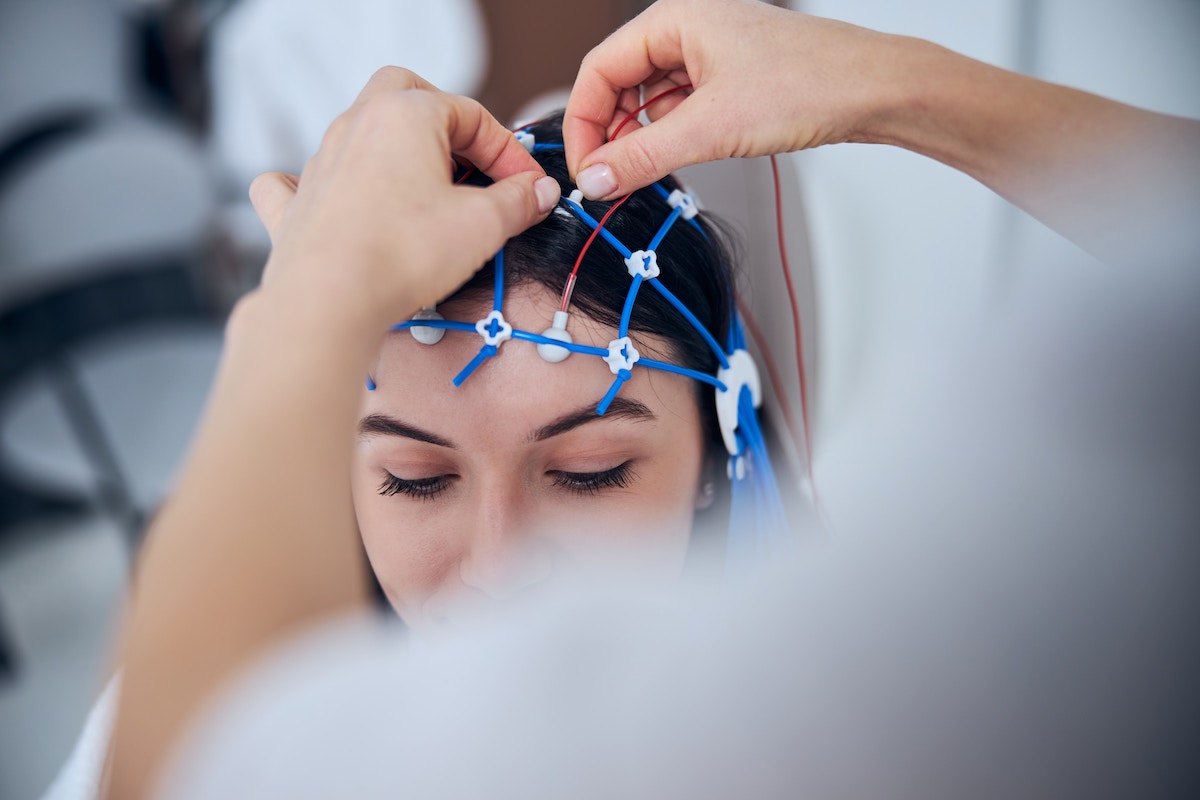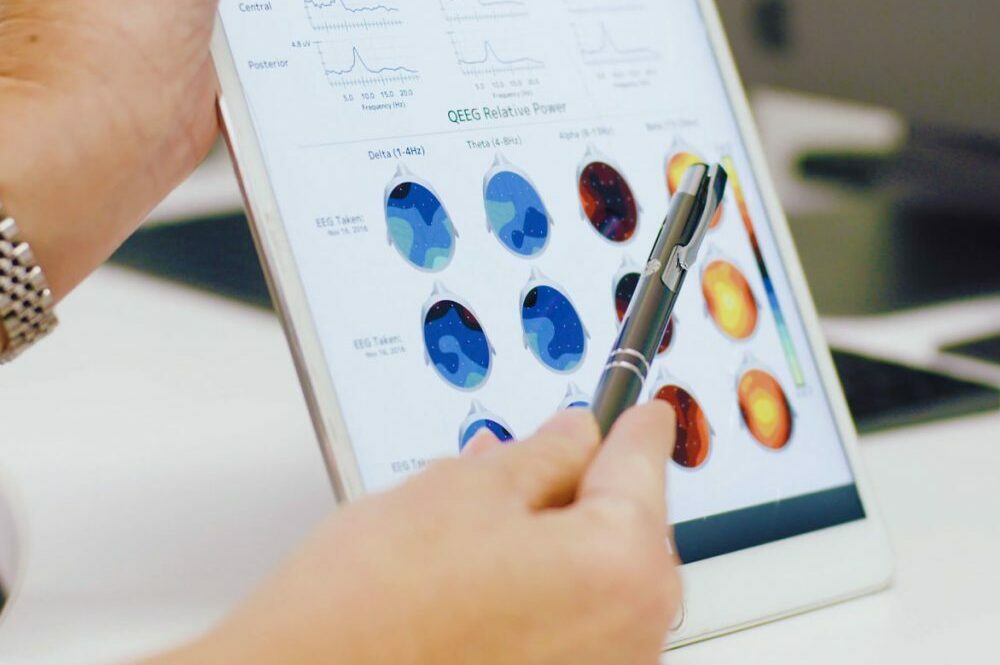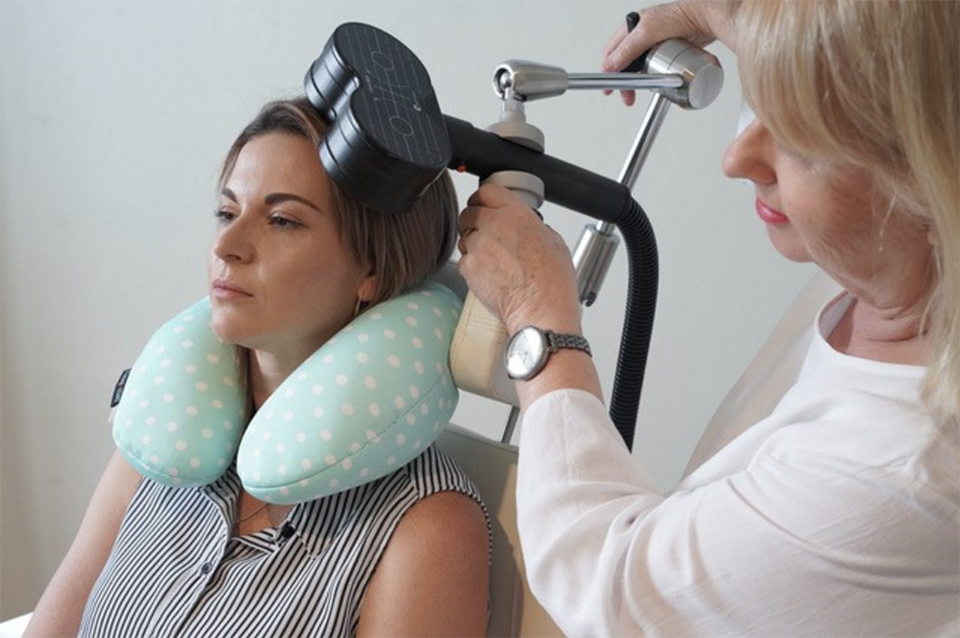
Dementia
Memory Loss can be concerning.
It is possible that MeRT could make a big difference in your quality of life.
Mert, magnetic resonance therapy
Dementia and Memory Loss
Dementia has many causes, but it’s not a disease in and of itself. Instead, various diseases can cause the symptoms of dementia.
Dementia affects thinking, perceptions, memory, and social abilities. And it can severely disrupt daily life and independence.
Memory loss is one of the most common symptoms of dementia. However, memory loss can also have different causes, and just because someone experiences memory loss doesn’t necessarily mean that they have dementia.
The most common cause of progressive dementia is Alzheimer’s Disease which occurs in older adults. Currently, there is no cure for Alzheimer’s, but certain drug therapies can slow its progression.
Symptoms of Dementia
- Memory loss
- Trouble finding words
- Difficulty with visual tasks, such as getting lost while driving
- Diminished ability to multi-task or solve problems
- Inability to handle complex tasks
- Coordination difficulties
- Inability to organize or plan
- Disorientation/confusion
- Changes in personality
- Depression/anxiety
- Paranoia
- Loss of inhibitions/behaving inappropriately
- Agitation and increased irritability
- Hallucinations, both auditory and visual
It is important to see a physician to determine the underlying cause of dementia, as some cases can be caused by underlying medical issues that may be reversible.
Contact our New Patient Coordinator
for more information. Or fill out the form below.
These medical conditions can include:
- Infections
- Autoimmune conditions
- Thyroid problems, low blood sugar, absorption issues with B vitamins
- Dehydration
- Adverse reactions to medications
- Anoxia — where organs may not be getting enough oxygen because of sleep apnea and other conditions
- Injuries to the head such as subdural hematomas
- Lewy body dementia – a condition caused by clumps of protein found in people with Lewy body dementia, Alzheimer’s, and Parkinson’s disease. Symptoms can include visual hallucinations (which can be terrifying), acting out dreams when sleeping, problems with attention and focus, and, with Parkinson’s, rigidity and tremors.
Causes of Progressive Dementia
- Alzheimer’s Disease
- Vascular dementia — damage to blood vessels in the brain. Slowed thinking, problem-solving, and focus are more pronounced than memory loss.
- Frontotemporal dementia – affects the area of the brain that dictates personality, behavior, thinking, and language. It’s caused by degeneration in the vessels that supply blood to the brain.
- Mixed dementia – some autopsies of people who are over 80 years old have shown that their dementia had several causes, such as Alzheimer’s, vascular dementia, and Lewy body dementia. Studies on these types of cases are ongoing.
- Traumatic brain injury (TBI) dementia – can be caused by severe brain injury or by multiple blows to the head as an athlete might receive. TBI can also cause depression, impaired speech, memory loss, and explosive temper, which may not surface until years after the injury.
- Down syndrome – many people with Down syndrome will develop early-onset Alzheimer’s disease.
While there is currently no cure for dementia, many treatments exist to help treat the symptoms. Here at the Brain Treatment Center Dallas, we offer MeRT to treat various types of dementia.
Dementia and MeRT
MeRT stands for Magnetic e-Resonance Therapy. This cutting-edge treatment protocol is drug-free, non-invasive, and gentle. MeRT® combines technologies of
- transcranial magnetic stimulation (TMS),
- quantitative electroencephalogram (qEEG) — also called brain mapping, and
- electrocardiogram (ECG/EKG) to measure brain-heart coherence
to analyze and formulate treatments tailored to each patient’s unique brain pattern.
The TMS equipment used is FDA-cleared to treat Major Depressive Disorder and OCD and is used off-label to treat other neurological-related conditions, including Dementia.
Our patients have reported significant clinical improvements after going through treatment.
Treatment protocols for PTSD are usually four weeks. Appointments are 30 to 45 minutes, five times per week, Monday through Friday. Generally, patients have reported noticeable improvements beginning in the first week.*
How MeRT Differs from Standard TMS
TMS (Transcranial Magnetic Stimulation) modulates the brain’s electrical activity by using magnetic fields which pass through the scalp from an electromagnetic coil. However, it is important to note that TMS is a generalized approach to neuromodulation because it can only target a single location in the brain with a single frequency.
MeRT is a unique and improved version of TMS, as it is a much more individualized approach to brain modulation. It is tailored to the patient’s needs based on frequency, location, and power used.
We perform a quantitative EEG before modulation treatment starts in order to determine exactly the frequency of your brain.
The patient’s initial tests are analyzed very carefully as to the brain’s pattern of function and activity. Through this detailed analysis, we can determine the correct neural synchronization. This information is then used to devise a highly personalized protocol for each patient, with the purpose of encouraging improved brain communication.
How Long is MeRT Treatment for Dementia?
Treatment for dementia usually lasts four to six weeks, with follow-up intervals as needed.
Appointments are 30-45 minutes long, Monday through Friday. Many patients report they begin to notice the benefits of treatment within the first week.*
It’s also important to note that while MeRT can’t cure or reverse dementia, it can slow down the progression and improve a person’s quality of life.
To learn more about the MeRT process and treatment protocols, please visit our MeRT page.
Dr. Miller has treated hundreds of patients with MeRT and has dedicated his life to helping those with neurological disorders, including dementia patients.
Read more about Dr. Miller — including his personal experience with MeRT treatment — by visiting the About Dr. Miller page.
Our Medical Director is a Specialist in MeRT Treatment
Dr. Spencer Miller is a Board-certified Neurologist and the Medical Director and owner of the Brain Treatment Center Dallas (and our sister center in Plano).
He is a MeRT specialist and was the first physician to bring MeRT to Texas.
“The easier way to understand what exactly we do is [to] use an analogy of a symphony. If a symphony conductor stood up and had everybody playing A and suddenly one of the first violins ends up playing an F minor or another note, that’s similar to what we call pathology or asynchrony or some sort of damage to the brain.
“And our goal is to be the conductor and correct it and make everybody play exactly the same notes or at least notes in harmony.
“When we see on an EEG that there is an abnormal signal somewhere in the brain or a low frequency… it’s very similar to the first violin playing the wrong note.
“The brain has an intrinsic frequency, and it’s different for everybody. And ifyou can align all the brain tissue to operate under that same frequency, that’s called synchrony coherence efficiency.
“We’re trying to make the brain operate as efficiently as possible.”
– Dr. Spencer O. Miller
Starting as a New Patient
When you start as a new patient at the Brain Treatment Center Dallas, you will initially need two appointments, approximately two days apart. Both appointments will be about an hour in length. These appointments will be used to determine if Dr. Miller feels you can truly benefit from the MeRT Program and, if so, to develop a tailored treatment plan based on your test results. After testing and Consultation, you are not obliged to begin treatment. This is something that you will determine once you have seen your test results and consulted with Dr. Miller.

Initial Testing
At the first appointment, we will go over your reasons for seeking help, your medical history, your health goals, and all of your symptoms. You will then begin initial testing, which will involve an EEG and an EKG. These are both completely painless and easy and done right in our office. We then send your information and test results to our scientific and clinical teams, who will carefully analyze the results and determine the current state and functioning of the brain together with Dr. Miller.
We use a patented, scientific approach with the neurophysiological data gathered through testing to develop a highly customized treatment plan aimed at encouraging healthy brain communication and function.

Consultation
At your second appointment, you will meet with Dr. Miller for a Consultation. He will discuss your test results and whether he and our scientific team feel you may achieve results through our treatment protocol. This appointment will also serve to answer any additional questions you may have. After that second appointment, Dr. Miller will lay out your individualized treatment plan and the protocols to be followed for the best results. At that point, you may discuss fees, length of treatment, and schedules, and then decide whether to go forward and schedule your treatment.

Test Run – The Assessment
We deliver the MeRT protocol using TMS. You simply sit in a comfortable chair while a trained technician carefully positions a simple device on your head. This device produces a magnetic field to induce mild electrical currents in the targeted regions of the brain. There is no pain and no electrical currents, just a slight sensation.
We will perform an additional EEG and EKG after about a week of treatment, allowing us to assess progress and make any needed modifications. In this way, we are always taking the best and most exacting approach based on the current neurological state.
Insurance Coverage
Unfortunately, we do not accept insurance, nor file it on your behalf. However, we can provide you with CPT codes and a billing breakdown. You can submit these to your insurance for possible reimbursement for conditions that TMS has been FDA-cleared t0 treat, such as Major Depressive Disorder and OCD. On occasion, individuals have been successful in receiving reimbursement for EEGs and clinical evaluations, and possibly other elements for treatment, depending on the individual’s coverage. It has been our experience that Medicare does not reimburse any of the treatment costs.
Contact our New Patient Coordinator for More Information about MeRT
When many patients come to see us, they have lost hope, as they don’t see any light at the end of the tunnel.
It’s rewarding as a practitioner to help so many people realize a much better “normal” and improved quality of life.
If you have questions or would like to discuss our treatment protocols, we offer a free consultation by phone.
Our New Patient Coordinator will take the time to listen and explain. She is able to answer most questions and discuss our protocols, scheduling, fees, and other information. She is happy to assist you in any way she can.
Please call us to get more information about how our clinic and Dr. Miller may help you with your health goals and to schedule an initial screening to see if MeRT may be an option.
Contact our New Patient Coordinator
for more information. Or fill out the form below.
